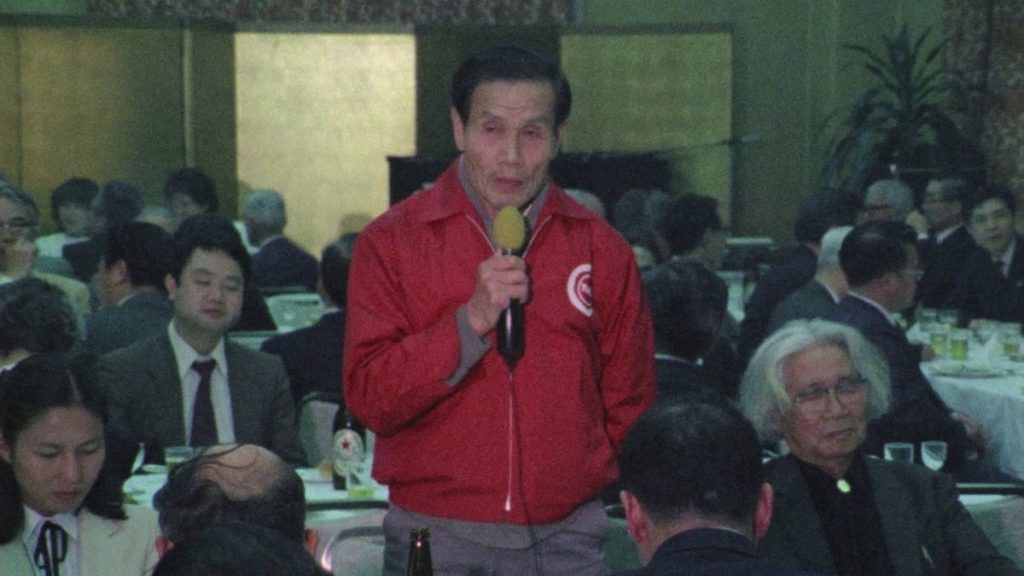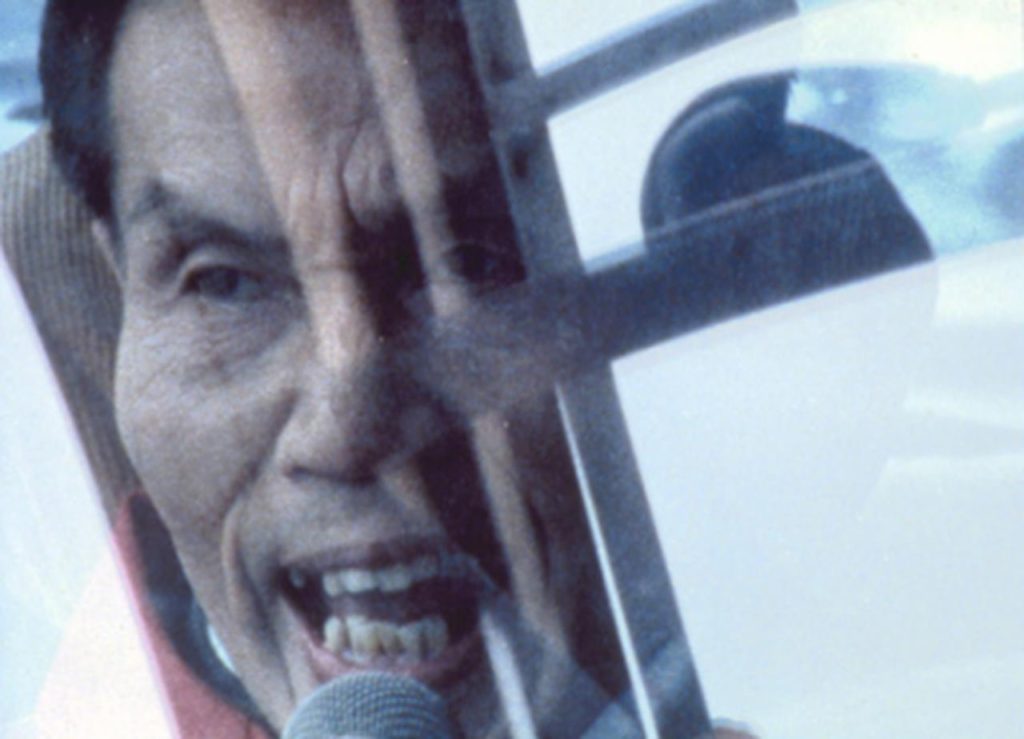The Emperor’s Naked Army Marches On: A Brief History of History Writing
By Wiwat Lertwiwatwongsa
The Emperor’s Naked Army Marches on was chosen by Documentary Club to be part of the Cinema of Commoning film programme, currently screening at all partner cinemas.

After his return from the war, Kenzo Okuzaki chose to oppose Emperor Hirohito, the man he believed was responsible for war and loss. After firing his slingshot at the Emperor, Kenzo served thirteen years in prison for manslaughter. Upon his release however, he remained obsessed with the idea of resisting the Emperor. His car was filled with picket signs. On a fine day, he would drive into the city and he would make a speech through a megaphone from the roof of his car.
He visited the mother of a soldier who died during the war and made a plan to ask permission from the president of Indonesia to pay tribute to fellow soldiers who lost their lives during the New Guinea campaign. Meanwhile, he joined Kazuo Hara, the director of the film The Emperor’s Naked Army Marches On (1987), in investigating the execution of soldiers after the war. It is believed that their murder was caused by the starvation of soldiers stranded in the jungle which led to cannibalism.
The film follows Kenzo as he talks to surviving former soldiers. However, his methods were highly questionable. Kenzo would ask disturbing questions of his interviewees, and if these were not answered properly he was willing to resort to violence, even if that meant that the police might come and arrest him. For him, the sins that everyone had to face were a result of Emperor Hirohito’s irresponsibility in sending soldiers to die while never being held accountable for his actions.
Kenzo’s terrifying interrogations served to reopen these soldiers’ wounds, forcing them to gaze back at the hell of combat, to recall their experiences of humanity at its worst. The story turns back and forth. New history is rewritten over the old one, until it is impossible to know what really happened. In the end, it feels as if everyone had a conclusion based on their own values.
The film is full of controversial arguments. Starting with Kenzo’s method, it makes us wonder whether or not it was correct or if the wife could disguise herself as the victim’s relative and use violence without fear of punishment. There is also a question about victims and killers who attempted to forget the past. Is forgetting the past enough? Other important issues that arise include topics such as the ethics of documentary, and where filmmaking tips over into exploitation.

It is important to consider this film in the context of contemporary Thai society, 35 years after its release, when the society is at a point of re-examining its official history by dismantling the writing process, and opening up a traumatic past. Although not as “great” as World War II, its impact on individual lives is equally severe. Therefore, it is very crucial to use a film that speaks to a specific society at a specific time in history as a mirror to reflect on another society at a specific time in the past. The Emperor’s Naked Army in Japanese society, where the dark history of the World War was buried, reflects on the struggle of a history that the state attempts to erase. A person like Kenzo might not be seen as a good human being. But his determination to “comfort the souls of dead fellow soldiers in his own way” made him find a goal worth fighting for. It became a terrifying mission, and he traded it with his own life.
The Emperor’s Naked Army Marches On is not just a documentary about a specific history of Japan. It also raises questions about historiography and history, about how by acquiring things one ends up shaping “history”. The film also expands on questions and existing values across nations, space, and time, moving from the past to the present.
Wiwat Lertwiwatwongsa is a cinephile, film critic, writer, and editorial team member of FilmclubThailand. He is also a committee member of the Bangkok Experimental Film Festival (BEFF) and member of the Filmvirus group, a loose group of Thai cinephiles that organises film screenings, seminars, and film book publications in Thailand. Since 2008, Wiwat has been curating and organising a series of Thai short film screenings called Filmvirs Wildtype, focusing on overlooked Thai short films. Since 2018, he has also collaborated with Documentary club for film programmes.